Yaesu FT-7900R Handleiding
Bekijk gratis de handleiding van Yaesu FT-7900R (84 pagina’s), behorend tot de categorie Radio. Deze gids werd als nuttig beoordeeld door 122 mensen en kreeg gemiddeld 3.6 sterren uit 61.5 reviews. Heb je een vraag over Yaesu FT-7900R of wil je andere gebruikers van dit product iets vragen? Stel een vraag
Pagina 1/84

DUAL BAND FM TRANSCEIVER
FT-7900R
OPERATING MANUAL
VERTEX STANDARD CO., LTD.
4-8-8 Nakameguro, Meguro-Ku, Tokyo 153-8644, Japan
VERTEX STANDARD
US Headquarters
10900 Walker Street, Cypress, CA 90630, U.S.A.
YAESU UK LTD.
Unit 12, Sun Valley Business Park, Winnall Close
Winchester, Hampshire, SO23 0LB, U.K.
VERTEX STANDARD HK LTD.
Unit 5, 20/F., Seaview Centre, 139-141 Hoi Bun Road,
Kwun Tong, Kowloon, Hong Kong
VERTEX STANDARD (AUSTRALIA) PTY., LTD.
Normanby Business Park, Unit 14/45 Normanby Road
Notting Hill 3168, Victoria, Australia

Contents
FT-7900R Quick Reference Guide ................... i
Introduction ...................................................... 1
Specifications .................................................... 2
Accessories & Options ...................................... 3
Supplied Accessories ..................................... 3
Optional Accessories ...................................... 3
Installation ........................................................ 4
Preliminary Inspection ................................... 4
Installation Tips .............................................. 4
Safety Information .......................................... 5
Antenna Considerations ................................. 6
Mobile Installation ......................................... 8
Mobile Power Connections ........................ 9
Mobile Speakers ......................................... 9
Base Station Installation .......................... 10
AC Power Supplies .................................. 10
Packet Radio Terminal Node Controller ..... 10
Front Panel Controls & Switches .................. 12
Side Panel Connection & Knob ..................... 14
LCD .............................................................. 14
Rear Panel Connections ................................. 15
MH-48A6J Microphone ................................... 16
MH-42B6JS Microphone .................................. 18
Basic Operation .............................................. 20
Turning the Transceiver On and Off ............ 20
Adjusting the Audio Volume Level and
Squelch Setting ........................................ 20
Selecting the Operating Band ....................... 20
Frequency Navigation .................................. 21
Transmission ................................................ 22
Changing the Transmitter Power Level ... 22
Advanced Operation ...................................... 23
Lock Feature ................................................. 23
Keyboard Beeper .......................................... 23
Display Brightness ....................................... 24
RF Squelch ................................................... 24
Channel Step Selection ................................ 25
Receiving Mode Selection ........................... 25
Repeater Operation ........................................ 26
Repeater Shifts ............................................. 26
Automatic Repeater Shift (ARS) .................. 26
Manual Repeater Shift Activation ................ 27
Changing the Default Repeater Shift ....... 27
CTCSS/DCS Operation .................................. 28
CTCSS Operation ......................................... 28
DCS Operation ............................................. 29
Tone Search Scanning .................................. 30
Split Tone Operation .................................... 31
Memory Operation ......................................... 32
Regular Memory Channel Operation ........... 33
Memory Storage ....................................... 33
To Append an Alpha-numeric “Tag”
to a Memory ......................................... 33
Storing Independent
Transmit Frequencies (“Odd Splits”) ..... 34
Memory Recall ......................................... 35
Memory Offset Tuning ............................ 35
Deleting Memories ................................... 36
HOME Channel Memory ......................... 36
Memory Bank Operation ......................... 38
Memory Only Mode ................................. 39
Hyper Memory Channel Operation .............. 40
Hyper Memory Storage ............................ 40
Hyper Memory Recall .............................. 40
Weather Broadcast Channel Operation ........ 41
Scanning .......................................................... 42
Setting the Scan-Resume Technique ............ 42
VFO Scanning .............................................. 43
Memory Scanning ........................................ 44
How to Skip (Omit) a Channel
During Memory Scan Operation .............. 44
Preferential Memory Scan ....................... 45
Memory Bank Scan .................................. 46
Weather Alert Scan .................................. 46
Programmable (Band Limit) Memory Scan .... 47
“Priority Channel” Scanning (Dual Watch) .... 48
VFO Priority ............................................ 48
Memory Priority ....................................... 48
HOME Priority ......................................... 48
WX Priority .............................................. 49
Priority Revert Mode ............................... 49
Smart Search ................................................... 50
ARTSTM:
Auto Range Transponder System
...... 52
Basic ARTS Setup and Operation ................ 52
ARTS Polling Time Options ........................ 53
ARTS Alert Beep Option ............................. 53
CW Identifier Setup ..................................... 54
DTMF Autodialer Operation ........................ 56
Internet Connection Feature ......................... 58
Miscellaneous Settings .................................... 60
Time-Out Timer ........................................... 60
Automatic Power Off ................................... 60
MIC Gain Control ........................................ 61
Programming the Key Assignment .............. 62
DCS Code Inversion .................................... 64
Reset Procedure .............................................. 65
Cloning ............................................................ 66
Menu (“Set”) Mode ........................................ 67
“Auto” Mode Preset Operating Parameters ... 78

FT-7900R O
The FT-7900R is a ruggedly-built, high quality Dual Band FM transceiver providing 50
Watts of power output on the 144 MHz Amateur band and 45 Watts on the 430 MHz Ama-
teur band.
The high power output of the FT-7900R is produced by its RD70HVF1 Power MOS FET
amplifier, with a direct-flow heat sink and thermostatically-controlled cooling fan maintain-
ing a safe temperature for the transceiver’s circuitry.
Featuring 1055 memory channels which enable the storage of Independent Transmit Fre-
quencies (“Odd Split”), and built-in CTCSS and DCS encoder/decoder circuits, the
FT-7900R includes also provision for remote-head mounting, utilizing the optional
YSK-7800 Separation Kit, which allows installation even in the most compact of cars.
Additional features include a convenient access key for Vertex Standard’s WIRES
™ (Wide-
Coverage Internet Repeater Enhancement System), a transmit Time-Out Timer (TOT), Au-
tomatic Power-Off (APO), Automatic Repeater Shift (ARS), plus Yaesu’s exclusive ARTS
™
(Auto-Range Transponder System) which “beeps” the user when you move out of communi-
cations range with another ARTSTM equipped station. And an RF squelch circuit allows the
owner to set the squelch to open at a programmable setting of the S-Meter, thus reducing
guesswork in setting the squelch threshold.
We recommend that you read this manual in its entirety, so as to understand fully the many
features of your new FT-7900R transceiver.
INTRODUCTION
Product specificaties
| Merk: | Yaesu |
| Categorie: | Radio |
| Model: | FT-7900R |
Heb je hulp nodig?
Als je hulp nodig hebt met Yaesu FT-7900R stel dan hieronder een vraag en andere gebruikers zullen je antwoorden
Handleiding Radio Yaesu

6 Juni 2023

30 Mei 2023

10 Mei 2023

21 April 2023

18 April 2023

11 April 2023

8 April 2023

6 April 2023

2 April 2023

25 Maart 2023
Handleiding Radio
Nieuwste handleidingen voor Radio
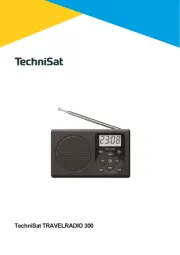
16 September 2025

15 September 2025

15 September 2025
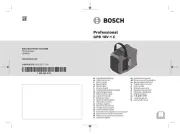
15 September 2025

13 September 2025
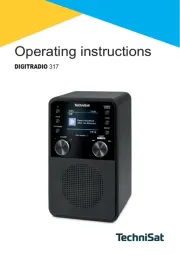
13 September 2025

12 September 2025
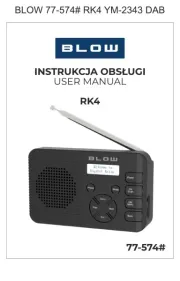
9 September 2025
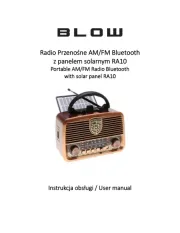
8 September 2025
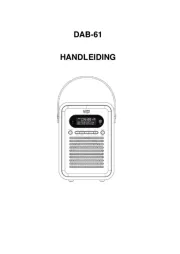
8 September 2025